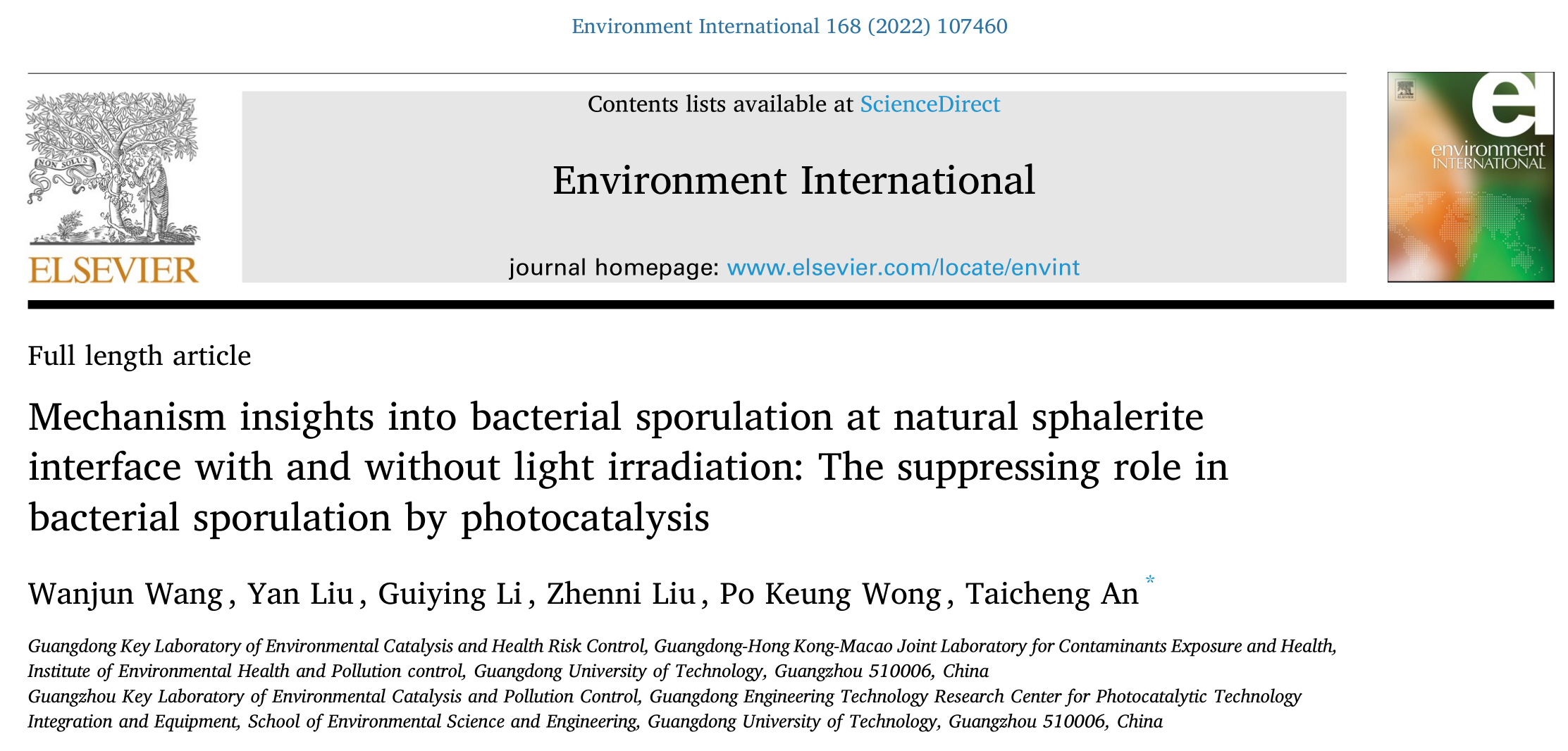《Mechanism insights into bacterial sporulation at natural sphalerite interface with and without light irradiation: The suppressing role in bacterial sporulation by photocatalysis》

DOI:https://doi.org/10.1016/j.envint.2022.107460
Website:https://www.sciencedirect.com/science/article/pii/S0160412022003877?via%3Dihub
Graphical Abstract:

ABSTRACT
Unveiling the mechanisms of bacterial sporulation at natural mineral interfaces is crucial to fully understand the interactions of mineral with microorganism in aquatic environment. In this study, the bacterial sporulation mechanisms ofBacillus subtilis(B. subtilis) at natural sphalerite (NS) interface with and without light irradiation were systematically investigated for the first time. Under dark condition, NS was found to inactivate vegetative cells ofB. subtilisand promote their sporulation simultaneously. The released Zn2+from NS was mainly responsible for the bacterial inactivation and sporulation. With light irradiation, the photocatalytic effect from NS could increase the bacterial inactivation efficiency, while the bacterial sporulation efficiency was decreased from 8.1% to 4.5%. The photo-generated H2O2and •O2-played the major roles in enhancing bacterial inactivation and suppressing bacterial sporulation process. The intracellular synthesis of dipicolinic acid (DPA) as biomarker for sporulation was promoted by NS in dark, which was suppressed by the photocatalytic effect of NS with light irradiation. The transformation process from vegetative cells to spores was monitored by both 3D-fluerecence EEM and SEM observations. Compared with the NS alone system, the NS/light combined system induced higher level of intracellular ROSs, up-regulated antioxidant enzyme activity and decreased cell metabolism activity, which eventually led to enhanced inactivation of vegetative cells and suppressed bacterial sporulation. These results not only provide in-depth understanding about bacterial sporulation as a new mode of sub-lethal stress response at NS interface, but also shed lights on putting forward suitable strategies for controlling spore-producing bacteria by suppressing their sporulation during water disinfection.